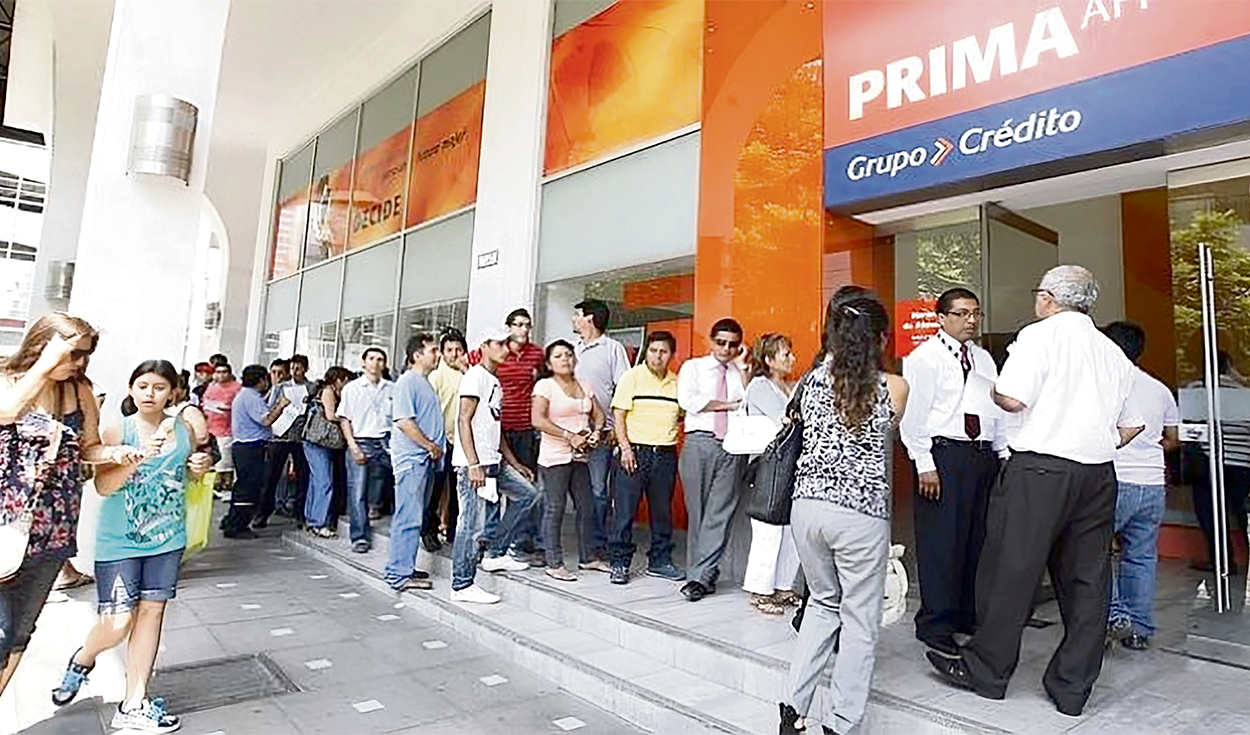
Three decades after the coexistence between the National Pension System—managed by the ONP—and the private one—the AFP—, Congress is one step away from creating the reform of the pension system, which was approved last Wednesday, May 29. on the first vote and was only supported by 56 parliamentarians. Another 47 rejected it and 10 abstained.
The initiative created in the Economy Commissionchaired by César Revilla (Fuerza Popular), proposes a consumption pension, composed of 1% of the VAT on individual purchases that must not exceed S/700 —and S/41,200 per year (8 UIT)—. The amount will be captured from the electronic tickets.
According to the project’s defenders—among them, the orange leader, Keiko Fujimori—this modality will encourage pension savings regardless of whether one is formal, informal, independent or unemployed. However, specialists of various political backgrounds and creeds agree that it will only benefit those who have the most, since 60% of the poor or vulnerable population buys in the informal sector.
The numbers speak
Peruvians on average earn approximately S/1,700 per month, and in the most ideal scenario, if they allocate S/1,000 for purchases with VAT, with the rate of 1%, they would pay S/10 per month for their retirement. In a period of 30 years, they would have more than S/20,000 and this would generate a pension of S/103, explains Jorge Carrillo Acosta, professor at Pacífico Business School.
“How much is the VAT? Fruits and vegetables do not have. In the (supply) market, almost nothing has it. A service like rental, either. And those S / 103 are considering the historical profitability rate of the AFPs of 10% annually,” he told La República.
Carrillo Acosta maintains that The reform proposal is better than the current system, but it is still insufficientsince it does not propose how to include 70% of the informal population.
It is worth adding that these consumption accounts are complementary to those created in the AFP and ONP, but they will be managed only by private parties – that is, the AFPs and the financial entities that will enter to compete. The ruling authorizes them to charge a commission for managing the savings.
Regarding this last point, Noelia Bernal, professor of Economics at UP, assures that our taxes collected by the State will be removed to “save the AFPs.”
Inequity
The congressional initiative (PL 344 and others) establishes a minimum pension of S/600, as long as all contribution units are met. If one has contributed for 10 years, but less than 15, a pension of S/300 corresponds, and if one has contributed for 15 years, but less than 20, S/400.
“The State complements the resources necessary for the payment of a minimum pension or a special proportional retirement pension,” reads the replacement text.
In the opinion of former Minister of Economy Pedro Francke, The mere existence of the AFPs defunds the ONP and this reform, apart from favoring them, will continue to hit the already weak state distribution model, because now the State will have to assume the errors of the AFP and provide more resources to complete a minimum pension.
In his opinion, it is an insult that there is no plan to expand the money that more than half a million poor adults receive in Pensión 65: barely S/125 a month, and that, on the contrary, they insist on a negative dual model that has not worked and ends up favoring businessmen, since it is not subject to the recommendation of the ILO and other global blocks: that the contribution be tripartite and not only burden the worker.
The AFP, an overwhelming monopoly
César Revilla, president of the Economy Commission, labeled the four AFPs of the private system as an “overwhelming monopoly.” “And someone from the right says it. “They had exorbitant profits,” he said in a ‘Cuarto Poder’ report.
Lawyer Álvaro Vidal considers that the initiative is “pure makeup” and cannot be interpreted as a reform. “The only thing that explains the insistence of this model is that there is a business behind it and that the congressmen are unfortunately being complicit in it,” he questioned. This Wednesday, June 5, the second vote would take place in the Full.
Reactions
Jorge Carrillo Acosta, professor Pacífico Business School
“S/1,700 is the income. Nothing in the market has VAT and informal people do not buy in supermarkets. Are you going to spend S/1,000 on medicine or streaming? Almost half goes to food. It is insufficient”.
Pedro Francke, former Minister of Economy
“The existence of the AFP defunds the ONP. Now the State will assume the AFP’s error, if it fails to create a minimum pension (…) and there will be no control mechanisms for its high commissions.”
The key
- Mea culpa. The AFP themselves are aware of their mistakes after more than 30 years in the country. “We did not see the level of pension that the citizen has,” acknowledged Aldo Ferrini, general manager of AFP Integra, two years ago.
- Congress. The second vote on the opinion will be seen starting on Wednesday, June 5.
Source: Larepublica
Alia is a professional author and journalist, working at 247 news agency. She writes on various topics from economy news to general interest pieces, providing readers with relevant and informative content. With years of experience, she brings a unique perspective and in-depth analysis to her work.











